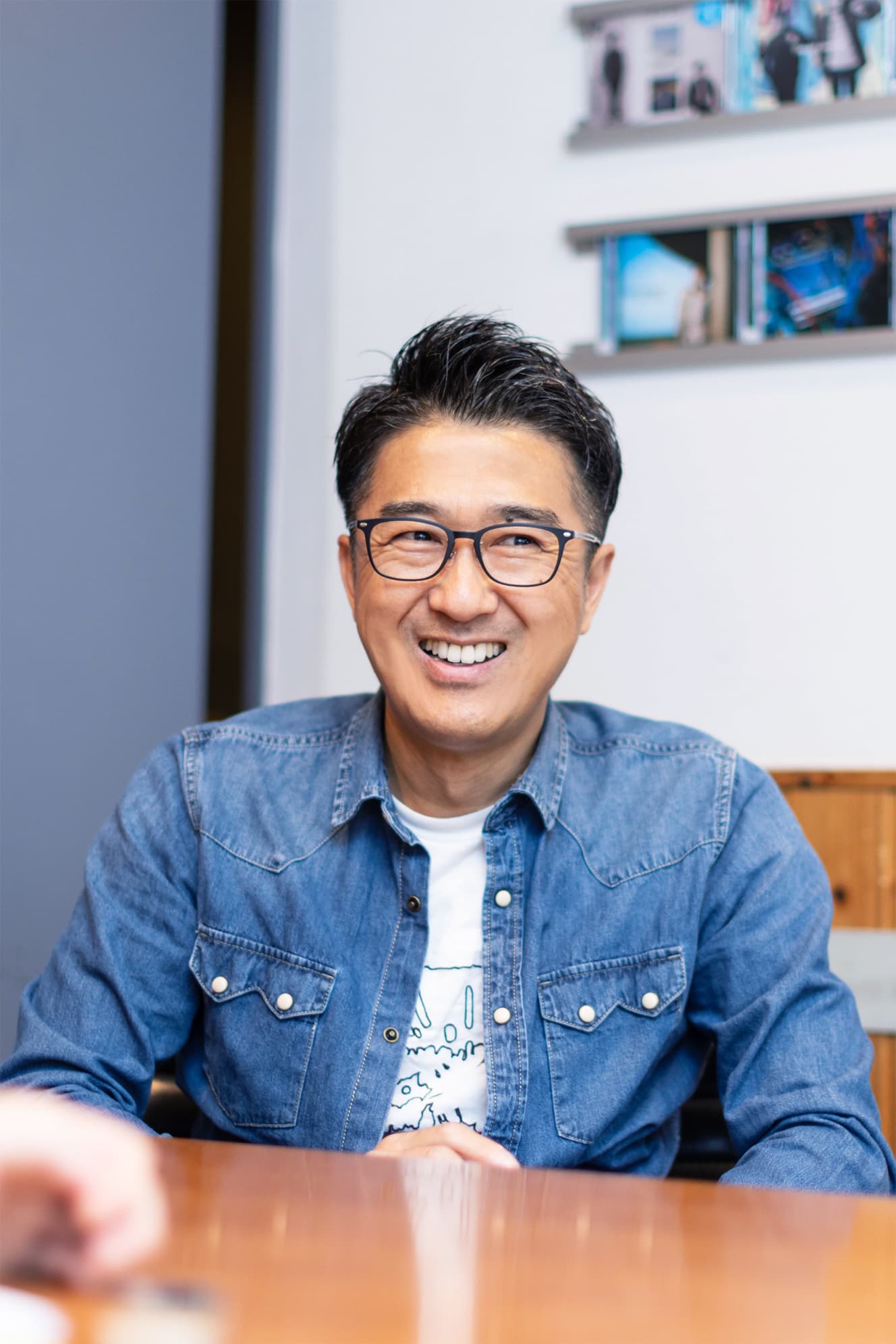DEEN’s Shuichi Ikemori: “I learned all the important things in life at Being Music School.
Million-selling artist and "soba evangelist" whose classic songs "Kono-sama Kimi Dakimanai wo Robutsukanai" and "Hitomi wo Soranai" have not faded away.

Before my debut, I used to wear a perm like Bobby Brown and play black music. You can’t imagine, can you? I was based in Sapporo for a few years, but when I was 22, a producer heard my demo tape and asked me to come to Tokyo. One day, I was asked to sing “Kono Hama Kimi Dake Dakukanitai” as a test song, just to try it out. Later that day, the producer said to me, “It’s decided with you! He introduced me to the keyboardist, Kouji Yamane (56), and said, “From today on, the two of us will be DEEN! And that’s how we came up with the name DEEN. We still don’t know the origin of the name “DEEN” (laughs).
DEEN vocalist Shuichi Ikemori (53), who released an anniversary album in March and performed live at the Budokan, recalled, “I thought, ‘Miracles do exist.
″The driver’s assistant″.
DEEN’s first single, “Kono mama kimi wo dakimasanai” (I want to take away only you), became a million-seller in 1993. A music producer at the music production company “Being” selected Ikemori, who had just moved to Tokyo from Hokkaido, to be the vocalist.
For Ikemori, who was aiming for a fusion of black music and J-pop, DEEN’s music must have been quite different, but he says, “I was not perplexed.
He was not perplexed. “ZARD, WANDS, T-BOLAN, Maki Ohguro (53), and other groups and singers he produced were all successful. I respected him, so I was only happy when he decided to make his debut.
I was lucky,” he says modestly, “but in order to get in front of the extremely busy producer, who had a waiting list of several hours just to say hello, Ikemori worked as a “driver’s assistant” for a month before his debut.
Ikemori was asked, “What does it mean to be a driver’s assistant? I discussed this job with the president of the management office and came up with the idea, but in reality, there was nothing in particular to do (laughs). I just sit in the passenger seat and follow the driver to all the sites. But I thought that if I was around him, he would care about me and say, ‘It’s time to do something about it.
In 1994, “Hitomi wo Sorasanaide” became her second million-seller. Her first album was also a big hit, selling over 1.6 million copies.
The fact that a guy with a permed head who had been playing black music until recently suddenly came into the world as DEEN must have been a revelation to people who knew him in Hokkaido. But my parents, who loved the songs, were honestly happy. Thanks to the hit, I was able to give them a house. I was able to show good filial piety.
It is not surprising that a person in his twenties would change if he had won a large sum of money. However, 30 years have passed since his debut, and Ikemori is still “the same person he was that day. His humble attitude has not changed.
If we had done all the songwriting ourselves from the beginning, we would have become arrogant for sure (laughs). (Laughs.) We have been able to continue for a long time because we were allowed to learn at the “Being Music School,” so to speak. We had some strict guidance, but that’s why we didn’t go down the wrong path. Whenever I met with producers, I always stood up straight.
While the hits kept coming, Being’s strategy limited media exposure in the first few years after their debut.
I had the feeling that I would be able to appear on TV after my debut,” he said. However, Being’s teaching was, ‘Never get carried away! Just focus on making good stuff! . Using famous authors and popular brands as examples, I was often told, “You may know the work and the product, but do you know the face of the creator?” I was often told. That said, I spend a lot of time and money on songwriting, and I use the studio as much as I can. I would lock myself in there and make demo tapes every day.
For the commercial tie-in, he worked with the designers to create the sound from scratch to match the image of the product.
For the commercial tie-up, he worked with the designers to create the sound from scratch to match the image of the product. I am sometimes asked, “Didn’t you hate being lumped in with the ‘Being-types’? I was rather proud of it. I was rather proud. It was being a part of that production group that made me what I am today.
Double Millions in Music & Soba
DEEN has had several member changes, but Ikemori and Yamane have remained steadfast.
I vividly remember when we greeted each other in a conference room in Roppongi, saying “Nice to meet you” and “Oh, hi. My first impression was that I was a ‘nice guy. After that, my manager took me to a mahjong parlor. I guess he wanted us to get to know each other since we were going to be working together as DEEN from now on. But we had dinner together only a few times in the past 30 years (laughs). (Laughs.) We knew each other’s phone numbers, but we didn’t know where we lived. But I think this distance was good. If he had been my friend since school, I would have complained if I saw something I didn’t like.
In recent years, Ikemori has become known as one of the best soba lovers in the entertainment industry. In addition to his magazine columns and YouTube channel, he has an online store that sells the dried noodles he produces, and in June of last year, he opened an actual store called SOBA CAFE IKEMORI.
In June of last year, he opened an actual shop called “SOBA CAFE IKEMORI.” His mania for eating soba 365 days a year was introduced on “Matsuko no Shiranai Sekai” (TBS) in 2006, and he became a breakout hit as a “soba evangelist.
I introduced my soba recommendation on the program, and it sold so well that it disappeared from supermarkets all over Japan,” said Ikemori. It became a topic of conversation that the sales of dried soba noodles, which had been so modest, had skyrocketed, and I even received a thank-you letter from a customer.
The fact that DEEN has been around for 30 years and that I became a soba evangelist is “99.9% luck,” Ikemori says modestly.
I’m not sure if it’s possible to have a double-million dollar career in soba and music,” he says modestly. The only other thing I can say is that I was grateful for the …… encounters I had and listened to people honestly. Come to think of it, about 25 years after my debut, a music producer who had been a great help to me invited me to dinner with T-BOLAN vocalist Moritomo (Ranshi Moritomo, 57), and the three of us had dinner together. It was like our first reunion, and it was a lot of fun. Next time I have dinner with him, I’ll ask him about the origin of DEEN! (Laughs)”
Seeing their carefree smiles, I felt I understood why they continue to be supported.





From “FRIDAY” May 12 and 19, 2023 issue
PHOTO: Hiroyuki Komatsu (1st photo)